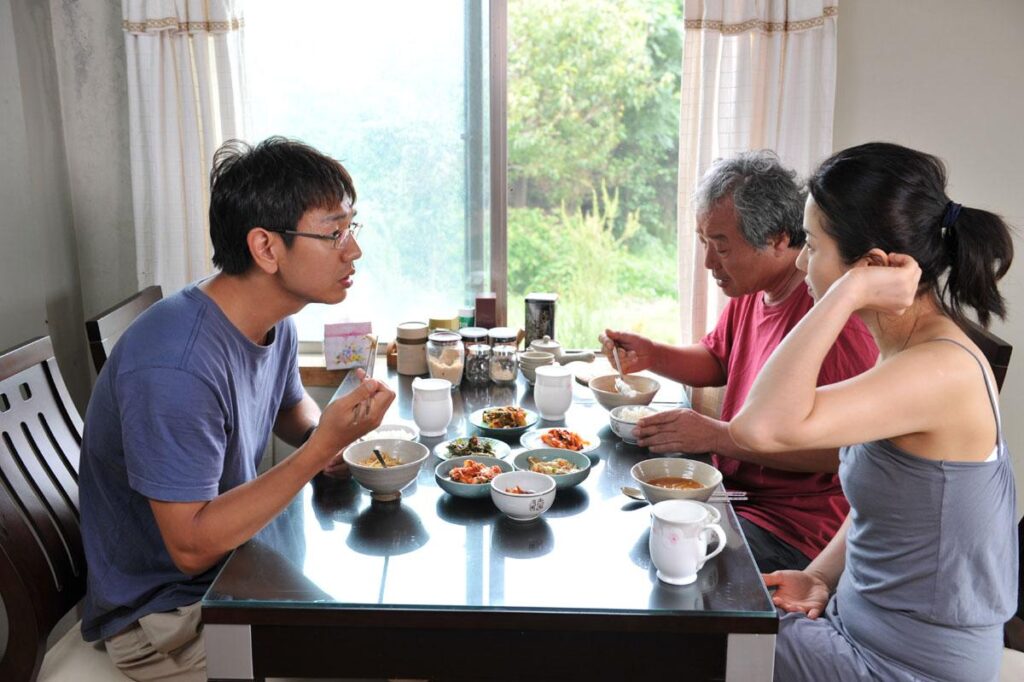As with many Hong Sang-soo films, 2009’s Like You Know It All deliberately repeats itself: Goo Kyeong-nam (Kim Tae-woo), an arthouse director, goes on two nearly identical trips — first to Jecheon, as a juror for the local film festival, and later to Jeju, as a guest speaker at a university — during which he bumps into long-forgotten friends, drinks heavily, and sleeps with someone’s wife. The chance encounters here serve as comedic fodder — Goo’s distractedness leads to him skipping or sleeping through screenings he’s expected to judge — as does Goo’s penchant for putting his foot in his mouth, as when he awkwardly expresses admiration towards actress who are clearly not interested in him. Hong mounts a rigorous, yet still hilarious self-critique of this flaky and sternly intellectual man’s demeanor. At a pool party, on the first night of the film festival, Goo enters into a conversation with a rising porn actress (Eun Joo-hee) during which the conceited filmmaker self-aggrandizes his role at the festival: “Many good films get buried here, I just want to give them a chance.” To which the actress replies, almost instantly, “Like your films?” Goo is so offended that he takes several seconds to recoup his icy demeanor, before pulling a “Well, actually…” and explaining that his films have been seen, so they can’t really be buried.
Goes beyond pure self-mockery and enters into the realm of ethics in art, and of what’s deemed ‘acceptable’ to chronicle about one’s life.
It’s only after the dramatic climax of Like You Know It All’s first half — when Goo leaves Jecheon early after getting caught sleeping with his ex-business partner’s wife (Jung Yu-mi) — that Hong’s greater intentions start to come into focus. As the events in Jeju begin to seem increasingly similar to those of 12 days earlier, in Jecheon, so does the feeling that this recursive cycle will never end. Once again, Goo is caught in an affair and left embarrassed by his actions, yet there’s never any indication of a plan to change; after all, this is the main source of inspiration for the director in this film’s narrative (and as well, one could argue, for the one behind the camera). This goes beyond pure self-mockery and enters into the realm of ethics in art, and of what’s deemed ‘acceptable’ to chronicle about one’s life. For Hong, this iterative mode of self-sustained toxic behavior is fair-game, even if it hurts others around him. When Goo and his most recent flame, Go Soon (Go Hyun-jung), end up on a beach in the film’s last scene, she pleads one small request — to not make a film about her. Goo is left puzzled, asking sheepishly, “Why not?” For Hong, art imitates life and life imitates art; one cannot exist separately from the other. So he makes his stand-in ask a most personal question, querying himself in the process.


Comments are closed.